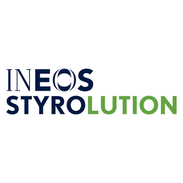

The Electronic Bill of Lading Declaration
The FIT Alliance was formed in February 2022 with five founding members: BIMCO, DCSA, FIATA, ICC and SWIFT. The key objectives of the FIT Alliance are to raise awareness and accelerate adoption of a standards-based electronic bill of lading (eBL) across all sectors of the shipping industry: a universal eBL.
A universal eBL would benefit all stakeholders involved in the global supply chain whether in bulk shipping or container shipping. By way of example, achieving 100% adoption of a standards-based eBL in the container shipping sector would benefit not only this sector but the global economy and the planet. According to McKinsey, universal eBL could:
-
Save the industry $6.5 B in documentation costs vs. physical bills of lading (B/L)
-
Unlock over $7 B in gains by reducing inventory and financing costs and enabling new business models
-
Unlock $30-40 B in global trade growth by reducing trade friction, especially for emerging markets
-
Save 28,000 trees per year and significantly reduce carbon emissions by eliminating paper
The FIT Alliance is working to catalyse this by creating a technological and legal foundation for international trade documentation based on DCSA, BIMCO and FIATA eBL standards, all of which are aligned with the UN/CEFACT Multimodal Transport Reference Data Model. Additionally, DCSA and SWIFT are in the process of developing eBL platform interoperability standards.
The Commitment
There is already significant momentum behind eBL adoption among FIT Alliance member organisations. Both DCSA and BIMCO have received adoption commitments from key stakeholder constituents. Through BIMCO’s “25 by 25 Pledge” and DCSA’s “100% eBL by 2030” initiative, some of the world’s largest bulk shippers and 9 of the top 10 ocean carriers have committed to switch their B/Ls to eBLs within two to seven years. 26 of FIATA’s Association members have adopted the eFBL (electronic FIATA bill of lading) and have begun to distribute it to their members.
While the FIT Alliance is pleased with this progress, realising universal eBL requires collaboration between all industry stakeholders. Now that many of the technical and legal obstacles to universal eBL are being addressed, what’s needed is a clear commitment to digitalisation from everyone involved in international trade. By signing this FIT Alliance eBL Declaration, all stakeholders in international trade can publicly signal their readiness for change and their commitment to collaborate to drive digitalisation, starting with eBLs, within their industries.
Stakeholder Call to Action
Beyond signing the commitment, stakeholders can take action to support the development and usage of eBLs based on what makes sense for their organization. Such actions could include the following:
-
Adopt eBL process and data standards from FIT Alliance members (DCSA, BIMCO and FIATA), use them in relevant product applications and encourage trade partners to do the same
-
Adopt existing eBL solutions and encourage trade partners to do the same
-
Support eBL standards development
-
Provide feedback on standards
-
Provide stakeholder requirements to developers
-
Participate in workshops, surveys, POCs and pilots executed by members of the FIT Alliance
-
-
Participate in promotional activities
-
Collaborate with FIT Alliance members to promote eBL standards (through marketing programs)
-
Share eBL success stories
-
-
Utilise eBL standards from FIT Alliance members in establishing new digital partnership
Achieving universal eBL requires all of us to work together to develop, adopt and promote eBL and eBL standards. Demonstrate your commitment to universal eBL by signing the FIT Alliance eBL Declaration and help move the industry closer to its promising digital future.
Sign the eBL Declaration
By signing the FIT alliance eBL declaration we support the eBL movement and commit to collaborate to drive digitalisation in international trade. This commitment is not legally binding but represents our shared vision for a more efficient and sustainable trade ecosystem. Together, we can lead the way towards a digital future powered by electronic Bill of Lading.
We reserve the right to feature the logos of signatories on our website at our discretion and do not guarantee the publication of any specific logo. View our Terms & Conditions.
Upcoming events

November 27, 2025 | 12:00 - 12:45
Webinar “Unlocking Digital Trade: eBL Interoperability for Container Shipping"
Speaker: Flavia Buso, Product Owner, Digital Trade at DCSA
Register here




























